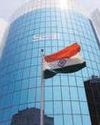
There were two outcomes at COP29 in Baku, Azerbaijan—in addition to a postponement—and both left a bitter taste for many.
The winners at the 29th annual edition of the United Nations Climate Summit were the United States, European Union, Canada, China, the Gulf countries, and the Azeris, who held the presidency of the summit this year.
The losers were emerging economies, least developed nations, island countries, and, of course, the global climate itself.
Unusually for a UN climate summit, COP29 was mainly about climate finance, and yet the finance mandarins were missing. Also missing were the heads of states of the EU, US, India, China, France, Germany, Brazil, and Russia, among many.
There were three key points of discussion. First, an agreement on a New Collective Quantified Goal on Climate Finance (NCQG), enabling countries to make new emission mitigation plans and set fresh goals by next February, dubbed Nationally Determined Contributions (NDCs). Second, adopting Article 6, an agreement among nations to set rules for a global carbon market. And third, a global stocktake to audit the emission plans of nations.
The first and second got through. The third got pushed to 2025.
Warming trajectory
The existing NDCs have failed to contain the warming of the planet beyond 1.5 degree centigrade from pre-industrial levels, the UN Environment Programme says in a report, with the planet set on a warming trajectory of 2.6 to 2.8 degrees.
But India, along with other emerging economies and poor nations, failed to persuade the Global North to open their wallets for a global climate finance deal.
This story is from the December 02, 2024 edition of Business Standard.
Start your 7-day Magzter GOLD free trial to access thousands of curated premium stories, and 9,000+ magazines and newspapers.
Already a subscriber ? Sign In
This story is from the December 02, 2024 edition of Business Standard.
Start your 7-day Magzter GOLD free trial to access thousands of curated premium stories, and 9,000+ magazines and newspapers.
Already a subscriber? Sign In

THE LONG ROAD TO DATA PROTECTION
The DPDP Act comes with a long gestation period. What does that mean for its efficacy?

Tata Punch tops '24 sales charts, ends Maruti's 40-year reign
For the first time in four decades, a non-Maruti Suzuki India car has topped the list of India's best-selling cars. In 2024, the Tata Punch, a sub-compact sport utility vehicle (SUV), became the highest-selling vehicle by delivering 202,030 units.
Isro marks milestone as cowpea seeds take root in space
Cowpea seedlings onboard PSLV-C60 POEM-4 module sprout their first leaves in space, signifying a milestone in space-based plant research, Isro said on Monday.

India reports 5 HMPV cases; govt says no need to panic
India on Monday reported at least five cases of Human Metapneumovirus (HMPV), which causes respiratory illness and was recently identified in China and Malaysia.
US 30-Year Bond Yield Highest Since 2023
US Treasuries slumped, lifting the yield on 30-year bonds to the highest since late 2023, as a rattled market prepares for $119 billion of fresh government debt issuance this week.
Indian Bond Index Inflows May Lag Estimates: Morgan Stanley
Indian bonds included last year in a key global benchmark will fail to draw as much money as previously estimated, according to Morgan Stanley.
Select factor fund based on conviction, risk appetite
Ajay Singh (name changed on request), a 35-year-old Noida-based lawyer, plans to invest in factor (or smart-beta) funds in 2025.

Jubilant FoodWorks Hits 52-Week High
Brokerages Offer Mixed Outlook After Strong Q3 Showing
Quadrant Future Tek secures ₹131 cr from anchor investors
Quadrant Future Tek on Monday garnered ₹130.5 crore from anchor investors ahead of its initial public offering (IPO).

Sebi Eases Fund Settlement Norms for Dormant A/Cs
The Securities and Exchange Board of India (Sebi) on Monday relaxed settlement norms for brokerage accounts remaining inactive for more than 30 days.